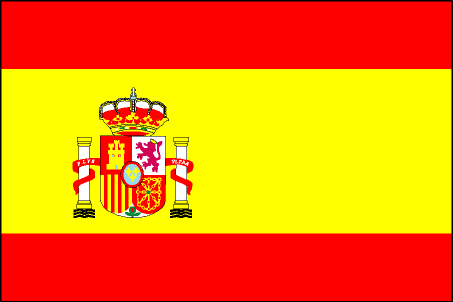Carl Heinrich Carsten Reinecke (June 23, 1824 – March 10, 1910) was a German composer, conductor, and pianist.
Reinecke was born in Altona, Hamburg, Germany, at that time a Danish town. He studied with his father, Johann Peter Rudolph Reinecke, a music teacher. Carl began to compose at the age of seven, and his first public appearance as a pianist was when he was twelve years old.
He undertook his first concert tour in 1843 which eventually led, in 1846, to his appointment as Court Pianist for Christian VIII in Copenhagen. There he remained until 1848. Overall he wrote four concertos for his instrument (and many cadenzas for others' works, including a large set published as his Opus 87), as well as concertos for violin, cello, harp and flute.
Carl Reinecke (ca. 1860)
In 1851 he became a professor at the Cologne Conservatory. In ensuing years he was appointed musical director at Barmen, and became the academic, musical director and conductor of the Singakademie at Breslau.
In 1860, Reinecke was appointed director of the Gewandhaus Orchestra concerts in Leipzig, and professor of composition and piano at the Conservatorium. He led the orchestra until 1895. There he conducted such premieres as the full seven-movement version of Brahms's German Requiem (1869).
In 1865 the Gewandhaus-Quartett premiered his piano quintet, and in 1892 his D major string quartet.
Reinecke is best known for his flute sonata "Undine", but he is also remembered as one of the most influential and versatile musicians of his time. He served as a teacher for 35 years, until 1902. His students included Edvard Grieg, Basil Harwood, Christian Sinding, Leoš Janáček, Isaac Albéniz, August Max Fiedler, Johan Svendsen, Richard Franck, Felix Weingartner, Max Bruch, Mikalojus Konstantinas Čiurlionis and Felix Fox among many others.
At the age of 80, Reinecke recorded his playing on piano roll for the Welte-Mignon company, making him the earliest-born pianist to have his playing preserved in any format.
After his retirement he devoted his time to composition and an output that contains almost three hundred published works. He wrote several operas (all unperformed today) including König Manfred. Reinecke died, at 85, in Leipzig.
Selected works
König Manfred, comic opera, 1867
Ein Abenteuer Händels, operetta, 1874
Auf hohen Befehl, comic opera, 1886
Der Gouverneur von Tours, comic opera, 1891
Symphony no. 1 in A major, Op. 79, 1858
Symphony no. 2 in C minor, Op. Op. opus 34, 1844
A piano quartet in light style, Op. 272, 1904
Piano quintet in A, Op. 83, 1866
Violoncello concerto in D minor, Op. 82, 1864
Violin concerto in G minor, Op. 141, 1876
Concerto for harp and orchestra in E minor, Op. 182, 1884
Flute concerto in D major, Op. 283 (1908)
Piano concerto no. 1 in F-sharp minor, Op. 72, 1860
Piano concerto no. 2 in E minor, Op. 120, 1872
Piano concerto no. 3 in C major, Op. 144, 1877
Piano concerto no. 4 in B minor, Op. 254, 1900
Serenade for strings in G minor, Op. 242, around 1898
Trio for piano, oboe and horn in A minor, Op. 188, 1886
Trio for piano, clarinet and viola in A, Op. 264
Trio for piano, clarinet and horn in B-flat, Op. 274, 1905
Octet for winds in B-flat, Op. 216, 1892
Sextet for flute, oboe, clarinet, 2 horns and bassoon in B-flat, Op. 271
Five string quartets (Op. 16 in E-flat, 1843, Op. 30 in F, 1851, Op. 132 in C, 1874, Op. 211 in D major, 1890, and Op. 287)
an organ sonata, Op. 284
a piano sonata for the left hand, Op. 179, 1884
a string trio in C minor, Op. 249
Sonata for flute (Sonata Undine), Op. 167, 1882
Sonatas for violin, cello (three, in A minor, Op. 42 1847-8, D major, Op. 89 1866 and G major, Op. 238, recorded on cpo)
Three light piano trios, Op. 159a
Piano trio, Op. 230
Drei Fantasiestücke für Viola und Klavier, Op. 43 (Three fantasy pieces for viola and piano)
Harp Concerto in E minor, Op. 182 (1884)
skip to main |
skip to sidebar
Find and play easy piano sheet music, music scores specially selected for piano beginners.
COMPOSERS
OTHER CATEGORIES
PIANO SHEET MUSIC IN YOUR EMAIL
LATEST PIANO SHEETS
Tags: bach piano, beethoven piano, beginner piano,buy piano, buy sheet music, cello sheet,chord sheet, christian sheet music, christmas piano, christmas sheet, classical piano, classical sheet, coldplay sheet, digital sheet music, download sheet music, downloadable sheet music,easy piano, easy sheet, free piano, free piano sheet music, free piano sheets, free sheet, free sheet piano, guitar sheet, guitar sheet music, happy birthday sheet, jazz piano, jazz sheet, learn piano, mad world piano, mozart piano, music sheet, music sheet piano, paino sheet, piano, piano chord, piano chords, piano cover, piano for sale, piano guitar, piano instrumental, piano keyboard, piano lesson, piano lessons, piano midi, piano music, piano music sheets, piano notes, piano pieces, piano price, piano price, piano prices, piano printable, piano sales, piano score, piano scores, piano sheet music, piano sheetmusic, piano solo, piano sonata, piano song, piano store, piano tab, piano tabs, piano violin, piano vocal, piano voice, popular piano, popular sheet, print sheet, printable sheet, printable sheet music, sheet, sheet flute, sheet keyboard, sheet music, sheet music downloads, sheet music for piano, sheet music online, sheet music piano download, sheet notes, sheet piano, sheet song, sheet songs, sheet trumpet, sheet violin, sheets, sheets music, sheets piano, solo piano, song sheet piano, songs piano, the piano, the piano sheet, trombone sheet, unfaithful piano, violin sheet music, vocal piano, vocal sheet pianos





No comments:
Post a Comment